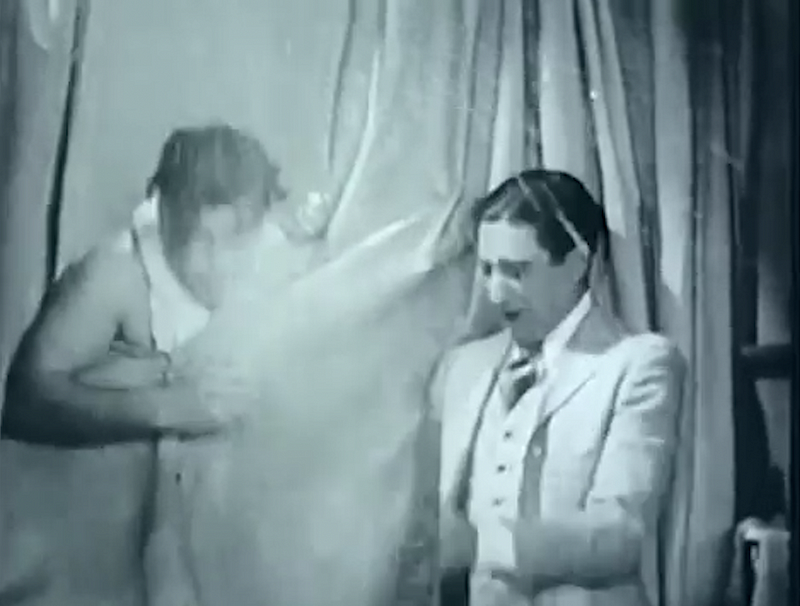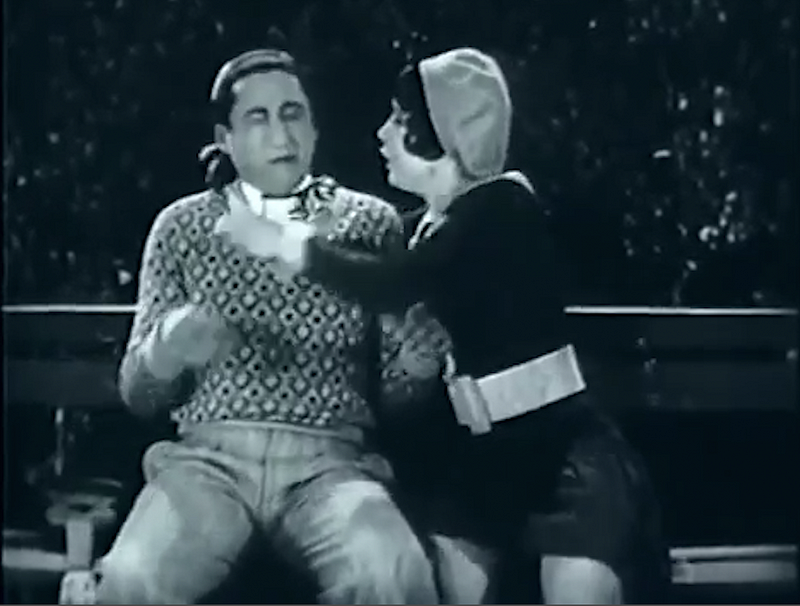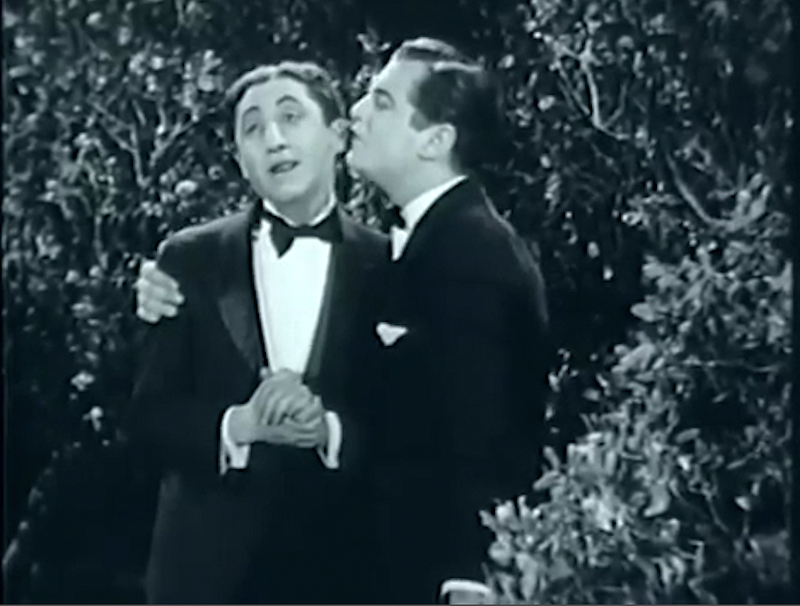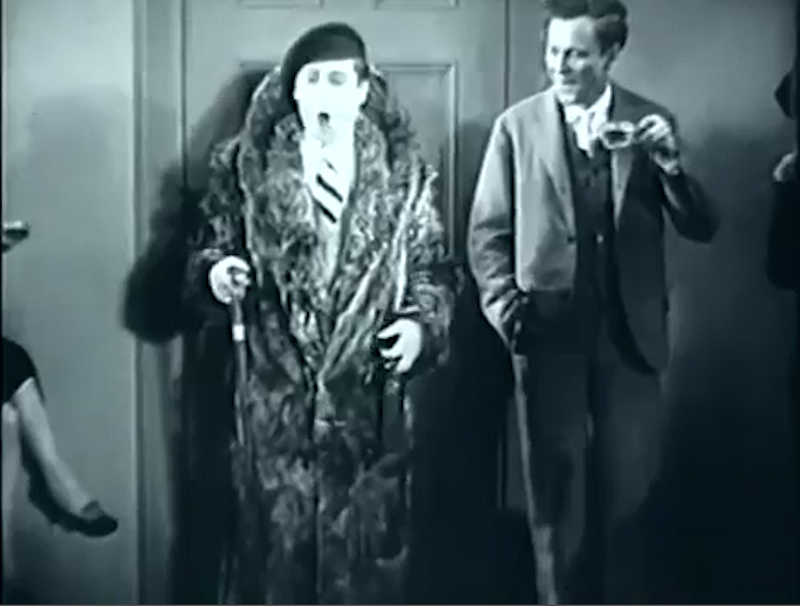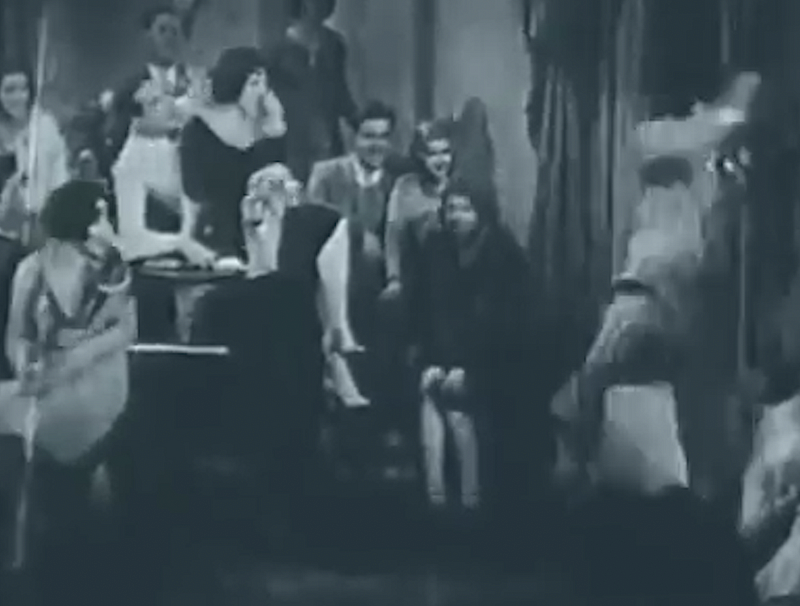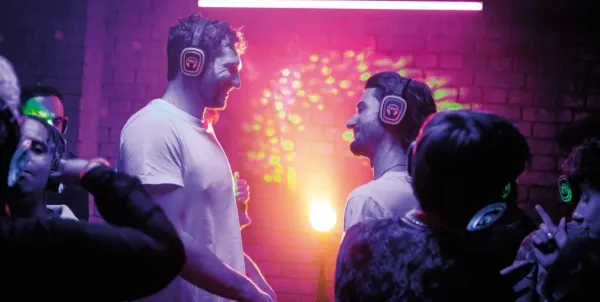The 1930s film that celebrated gay men
Decoding the subtext of a different era
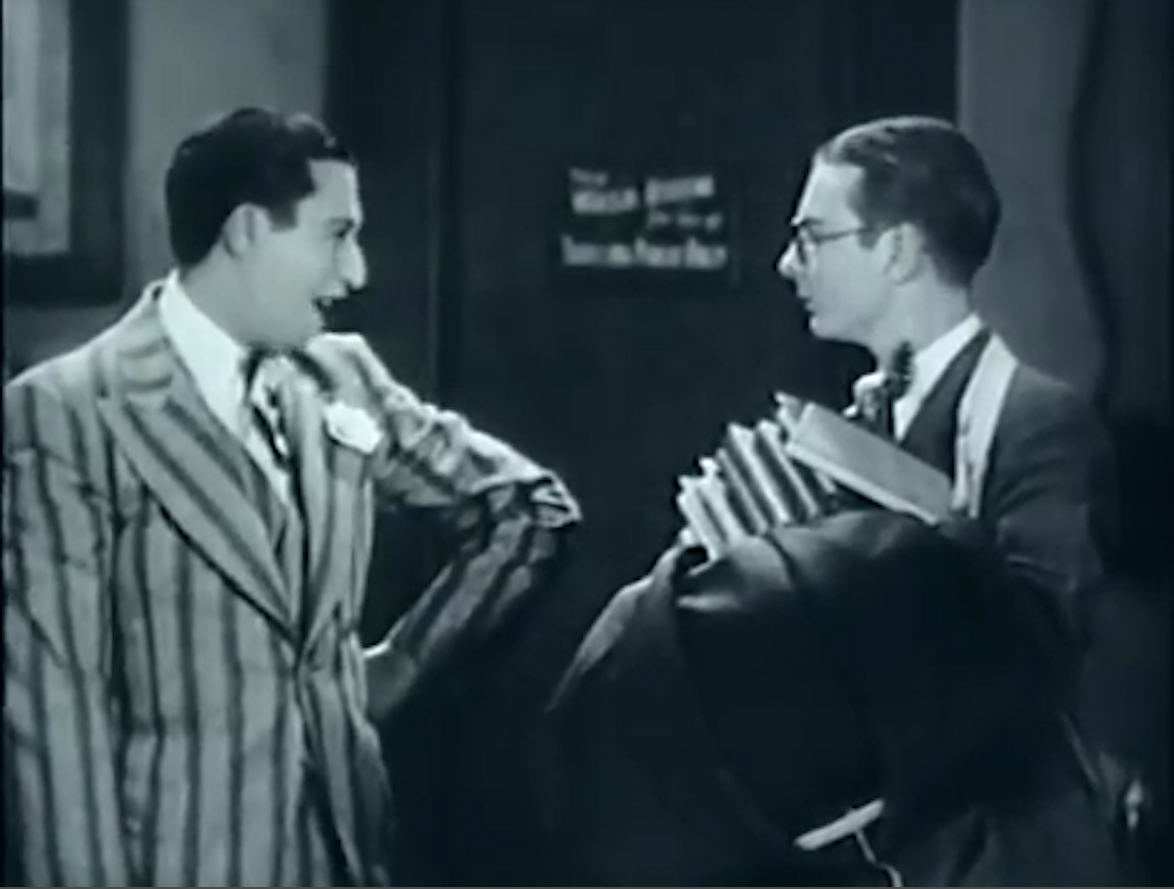
We caught up with author Glen Cram to talk about his analysis of Sunny Skies — a film from 1930.
How did you come across Sunny Skies?
I’m honestly not sure. I tend to search for strange things on YouTube, and suddenly found myself looking at a movie from 1930 featuring a man whispering — “I love you Doris…” in another man’s ear, and the other man responding like a besotted schoolgirl. I started flipping though, and there were people saying things like — “Women have no place in my scheme of existence…” and singing — “I Want to Find a Boy…” plus the don’t-blink-or-you’ll-miss-it last-second swish. They seemed to be random in-jokes, until I realised that the laughing song at the end was telling us exactly what was going to happen, which meant that Benny’s spin out the window was no accident. The rest of the story came together from there.
What do we know about Sunny Skies?
It was made in 1930 by Norman Taurog — who went on to direct Elvis in the 60s — from a story by Andrew Percy Younger. It stars popular Jewish comedian Benny Rubin, and leading man Rex Lease. I couldn’t find any direct evidence that any of them were gay, except possibly for Younger’s suicide the year after the film was released. But all four of these men, at least, would have had to be in on the ‘secret’ if such it was.
The same team also made the baseball film Hot Curves the same year, which has no gay subtext that I can see. It’s as if they had a particular story they wanted to tell here, which resonated in different ways with each of them, and which once told didn’t need to be told again.
What makes Sunny Skies a point of interest in film history?
This film was released at the same time that governments worldwide were starting to crack down on ‘decadent’ content in the media, which had become increasingly liberalised in the 1920s. In this case, the Motion Picture Production Code restricted any, but especially gay, sexual content in American film — less than a year later, the openness of Sunny Skies would be impossible.
There were other films at the time, such as Max Haines’ Way Out West, featuring even broader gay humour, and no doubt more would have followed if the trends of the 20s had continued.
Compared to other films from that era, was Sunny Skies considered to be a well-made film?
I couldn’t find any contemporary reviews, but I wouldn’t call it ‘good’ by any standard. Films like this were churned out by the dozens — they would have hit a town, played for a few days, and been gone again without a trace. Most people would have seen it as a standard light comedy and forgotten about it the next day.
What are some of the coded signals that you’ve identified in the film?
One thing I found surprising was that Benny’s conflicted sexuality and doomed love is portrayed quite openly, especially when it comes to the crisis at the end. Openly to us, anyway — I can imagine the confirmed bachelor in the fuchsia tie laughing out loud at St Peter’s injunction to — “Go and shovel coal…” and Benny’s impromptu facial from Jim in the shower, or Stubbles’ ‘glandular excretions’ while the rubes around him just didn’t get it.
Times have definitely changed, we now have major studios producing films like Love, Simon. Is there a room for some sort of nostalgia where gay guys had almost a secret world where they were sending messages to each other through films such as Sunny Skies?
True, in Love, Simon the hero actually gets his guy, but note that he still has to go through various sorts of shit because of his sexuality, and who knows or doesn’t know about it. Times change, people don’t. I doubt that many people, except extreme risk-takers or masochists, would want to return to a world where you could go to prison for a wink and a nod in a public toilet.
There’s a tribal appeal in being part of an in-group outside normal society, with its own customs and lingo, and the modern gay community reflects and revels in that. But except for secretive gatherings and private clubs in the bigger cities, that ‘community’ in 1930 actually comprised a lot of confused, isolated people surrounded by an alien world. I’m sure the makers of this film were very conscious that they were speaking to members of that group, and letting them know that they were not alone.
